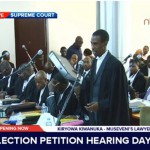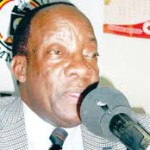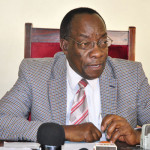Zimbabwe’s harmonised elections will be held between July 21 and August 21, 2018, the country’s electoral body, the Zimbabwe Electoral Commission (ZEC) has said.
ZEC chairperson Justice Priscilla Chigumba said that while it is the prerogative of the President to proclaim the election date, it is done within the confines of the Constitution.
Section 158(1)(a) of the Constitution of Zimbabwe ‘outlines (that) a general election election must take place not more than 30 days before the expiry of the five year period’.
“The last general elections were held on July 31, 2013 and the President-elect was sworn and assumed office on August 22,” Chigumba, who was appointed new ZEC chair on January 31, said.
She said from a reading of the Constitution, “it follows that the next general elections should be, thus, held on any date between July 21 and August 22, 2018”.
The ZEC boss added that while the commission awaited the proclamation of the 2018 election date, they were seized with “the process of decrypting data from the biometric voter registration and preliminary cleaning of data collected during the blitz phases as it awaits the delivery of de-duplication software”.
“After data de-duplication, a provisional voters’ roll will be produced and opened for public inspection before the final roll is printed,” Chigumba said.
Zimbabwe will go to elections for the first time since the coming to the fore of main opposition party MDC-T without Robert Mugabe, who was deposed in November 2017 during a military takeover, and Morgan Tsvangirai, who died on February 14 after battling colon cancer for about two years.
The frontrunners in the 2018 election will be Zanu PF’s Emmerson Mnangagwa, who took over power from Mugabe, a man he had walked side by side for more than 50 years, and the MDC-T’s youthful Nelson Chamisa, the first youth leader at the formation of the opposition party since 1999.
Chamisa, who will go into the election as MDC Alliance leader, assumed control of the MDC-T after his Tsvangirai’s death.
MDC Alliance is a grouping of seven opposition parties, with MDC-T the bigger stakeholder.
Others include the Welshman Ncube-led MDC, Zimbabwe People First, Multi-racial Christian Democrats, Zanu Ndonga, Transform Zimbabwe and the People’s Democratic Party, led by former finance minister during the unity government, Tendai Biti.








